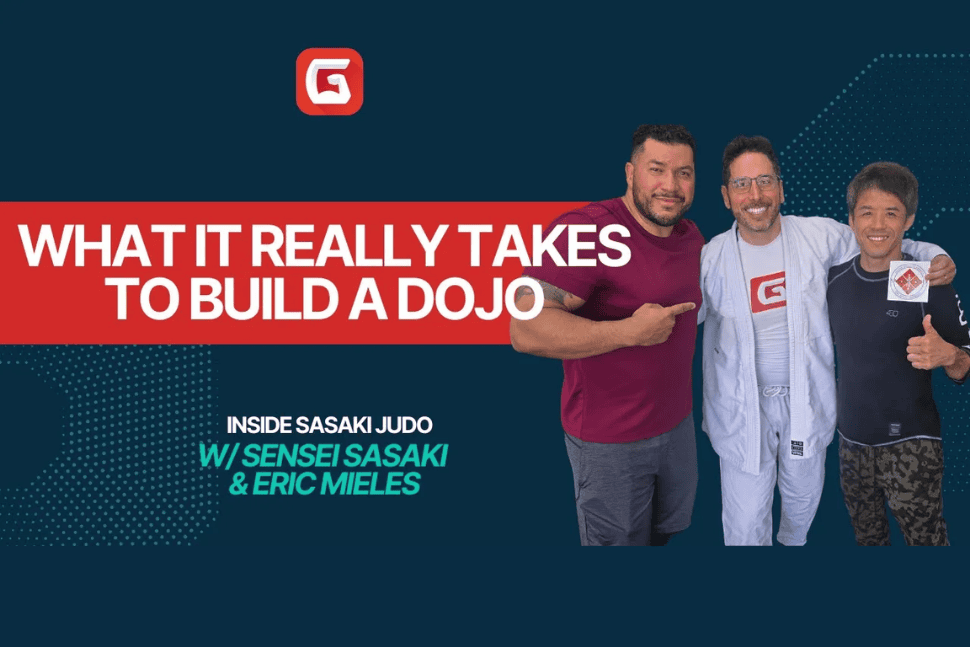Shinjiro Sasaki’s journey in martial arts began not with a grand vision for business, but with a deep and abiding love for judo instilled since childhood. His story, echoed and supported by his instructor Eric Nellis, is one of perseverance, cultural transition, and the careful balance between passion and practicality.
Early Days: Judo as a Way of Life
For Shinjiro, judo has always been at the heart of everything. Reflecting on his upbringing, he shares, “My martial arts background is just judo, so I’ve been doing judo since six years old.” Even as life offered temptations to explore other sports, judo remained a constant: “Of course, I was doing other sports too, but I had never stopped. Judo. Playing softball, playing soccer, but I had never stopped judging judo every day.”
This single-minded dedication—“Just judo. Just one way.”—would lay the foundation for his eventual journey as a sensei and, later, as a dojo owner.
Planting Roots: The Challenge of Opening a Dojo in a New Country
Shinjiro’s move from Japan to the United States was not without difficulties. As an immigrant, building a new life—and a new school—came with bureaucratic and logistical hurdles. “Because I’m an immigrant, so from Japan, so it’s not easy to open my business, you know. So you need to go through visa issue. I went through the visa issue. Well, and then so finally, so using my name, I have my own gym now.”
For Shinjiro, establishing “Sasaki Judo” in Orlando, Florida, was more than an entrepreneurial step; it was a commitment to both his roots and to the community. Though he had used the name for some 15 years, it took eight to bring his own dojo to its current home.
Building a Family, Not an Empire
Unlike business owners with aspirations for endless expansion, Shinjiro prizes personal connection and quality above numbers. “Probably in business, I should say, I want to make my business bigger, but I’m not interested in making dojo bigger. I just want to stay in this place. I mean, in the dojo. And then for me, I have 150 students. Sensei is only one. Only one.
So if I cannot remember their face and their name, it’s not good. Sensei, that’s how I feel.”
His values have clear roots in his own experiences: “That was my experience. So when I went to seminar, so the clinician said, hey, you. That my name? Hey, you. So me, I felt like it’s a little sad.” His approach is personal. The dojo, for Shinjiro and Eric alike, is as much a family as it is a business.
Eric confirms this atmosphere for anyone who enters: “Here there is a family element and environment. Here we all have access to Sensei Sasaki. Sensei Rieko Sasaki. And I think that’s one of the things that he’s speaking about.”
Struggles with the Business Side
Despite their successes, neither Shinjiro nor Eric claims to be natural business people. Shinjiro admits, “Even I am good product, but I don’t know how to sell this product. So that’s why I need somebody to sell my product. So he [Eric] helped me a lot. Not only him, so other students too. Always my students help. So that’s why I will help my students 100%.”
Transitioning from pure martial artist to business owner meant facing unexpected challenges—especially with tools and processes outside his comfort zone. “In judo business or martial arts business, I think there’s some people like me. It is good to teach or supporting students, but not good at, like, a desk work. So gym desk, that system helps people like me. Mostly everything’s automatic, so it helps me a lot.”
Finding Purpose and Moving Forward
Despite the challenges and the ever-present temptation to expand, Shinjiro’s goals remain rooted in what matters most to him—quality instruction, strong relationships, and the growth of judo itself. “I want to grow this sport. So that’s why I’m just doing judo. Plus, I feel myself like I have talent in judo. So using my talent, I wanted to live so this life.”
His vision for the future is modest but purposeful: “My goal this year is to make 130 students for this year. I mean my max goal is 150 students and then it’s gonna be packed, but still 120 and 20 or 25. So. But my goal this for this year is 130 people.”
For Shinjiro, the dream is not of franchises and empires, but of a single, thriving community, where each student matters and the legacy of judo is carried forward—one class, one name, one person at a time.
 Gym Owner Statistics: The State of Gyms, Member Trends, and Usage Data
Gym Owner Statistics: The State of Gyms, Member Trends, and Usage Data




 EN (English)
EN (English)
 JA (日本語)
JA (日本語)